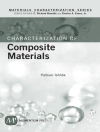This volume serves as a cutting edge reference on XLPE based blends, nanocomposites, and their applications. The book provides an introduction to XLPE nanocomposites and discusses the incorporation of natural and inorganic nanoparticles in the XLPE matrix. It also focuses on its characterization as well as the morphological, rheological, mechanical, viscoelastic, thermal, and electrical, properties. It provides an in-depth review of various potential applications, with special emphasis on use in cable insulation. The book focuses on cutting edge research developments, looking at published papers, patents, and production data. This book will be of use to academic and industry researchers, as well as graduate students working in the fields of polymer science and engineering, materials science, and chemical engineering.
Jadual kandungan
Chapter 1: An overview to XLPE based blends and nanocomposites.-
Chapter 2: Types of nanoparticles used in XLPE systems.-
Chapter 3: Different techniques used for the incorporation of inorganic nanoparticles in XLPE matrix.-
Chapter 4: Critical issues in XLPE based polymer nanocomposites and their blends.- Chapter 5: General applications of XLPE nanocomposites and blends.-
Chapter 6: Advanced characterization techniques in XLPE nanocomposites and blends.-
Chapter 7: XLPE nanocomposites and blends: Morphology and mechanical properties.-
Chapter 8: Thermal and flame retardant properties of XLPE nanocomposites and blends.- Chapter 9: Insulation aspects of XLPE nanocomposites and blends.-
Chapter 10: Potential applications of XLPE nanocomposites in the field of cable insulation.-
Chapter 11: Potential applications of XLPE blends in the field of cable insulation.-
Chapter 12: Electrical insulation: XLPE verses conventional materials.-
Chapter 13: Theoretical aspects of XLPE based blends and nanocomposites.-
Chapter 14: XLPE based products available in the markets and their applications.-
Chapter 15: Research developments in XLPE nanocomposites and their blends : published papers , patents and production.-
Chapter 16: Risks associated with XLPE nanocomposites , limitations and Imminent.
Mengenai Pengarang
Jince Thomas received his Master’s degree in Polymer Chemistry in 2012 and M.Tech. in Polymer Science and Technology in 2014 from Mahatma Gandhi University (MGU), India. He conducted his doctoral research at MGU in the research group of Prof. Sabu Thomas, the present Vice Chancellor of MGU, and Prof. Bejoy Francis (Ph.D. Guide), Assistant Professor, St. Berchmans College, India. He was a visiting student at the University of Tennessee (Knoxville) in 2014 and a project trainee at the International and Inter University Centre for Nanoscience & Nanotechnology, MGU, during 2015-16. He worked as a project assistant in an Indo-Malaysian Project during 2016-17 in collaboration with University Technology Mara, Malaysia. He also worked as a visiting student in Ariel University, Israel. He has contributed to numerous publications, book chapters, and books. His research interest focuses on polymer and polymer nanocomposites.
Prof. Sabu Thomas is currently Vice Chancellor of Mahatma Gandhi University, Kerala, India. Prof. Thomas is an outstanding leader with sustained international acclaims for his work in Nanoscience, Polymer Science and Engineering and Green Materials. Prof. Thomas has received more than 30 national and international awards. He has published over 1200 peer reviewed research papers, reviews, and book chapters. He has co-edited 150 books, and is an inventor of 15 patents. The H index of Prof. Thomas is 108 and has more than 56, 000 citations. Prof. Thomas has delivered over 350 plenary/inaugural and invited lectures in national/international meetings over 40 countries. Prof. Thomas has supervised 115 Ph.D. programmes and his students occupy leading positions in academia and industry in India and abroad.
Prof. Zakiah Ahmad is the Dean of Faculty of Civil Engineering at Universiti Teknologi Mara. She obtained her Bachelor’s and Master’s at the Memphis State University (USA), and pursued her Ph.D. in Timber Engineering at the University of Bath, United Kingdom. Prof. Ahmad specialises in timber engineering and timber composites, and her other interest includes nano-polymer composites as well as cement composites. She serves as a consultant, committee member and advisor to numerous public agencies and institutions, and has been appointed as visiting scientist at BRE Research Institute, University of Bath, United Kingdom, Centre for Nanoscience and Nanotechnology, School of Chemical Sciences, Mahatma Gandhi University India and Timber Research Institute, Kyoto University Japan. Prof. Ahmad has published more than 300 papers in journals and proceedings, and plays an essential role in the Malaysian Standard committeesas the Chairman and committee member and as Malaysian delegates/representative for ISO technical committee.












